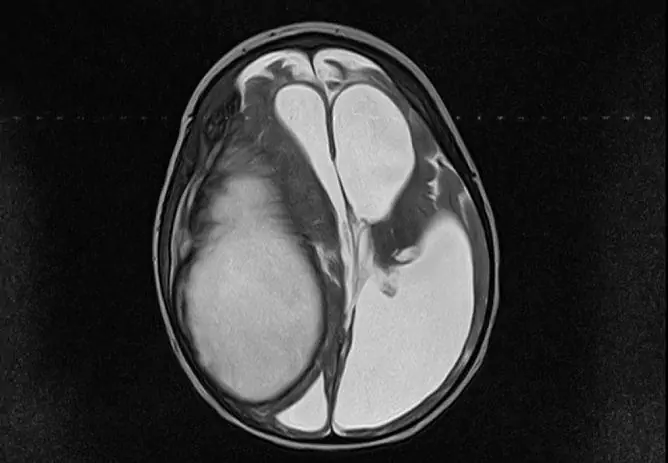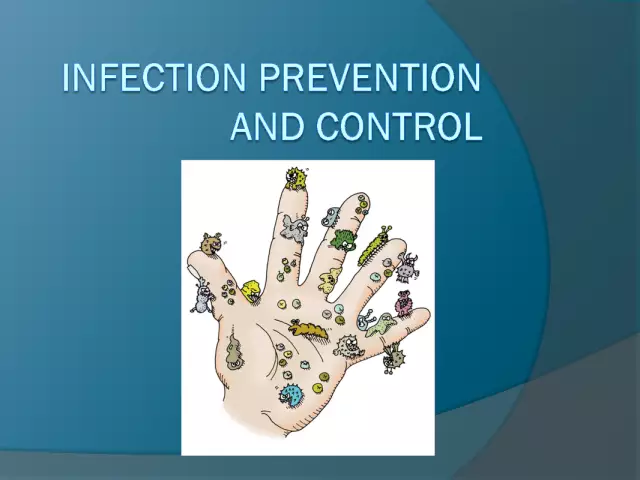- Author Rachel Wainwright wainwright@abchealthonline.com.
- Public 2023-12-15 07:39.
- Last modified 2025-11-02 20:14.
The mercury thermometer in the apartment crashed: what to do and what are the consequences
The content of the article:
- What is the danger of a broken thermometer
- What to do if a mercury thermometer breaks at home
- What is forbidden to do if the thermometer breaks
- Mercury poisoning symptoms
- First aid and treatment for mercury poisoning
- Safety measures when using a mercury thermometer
What to do if a thermometer breaks in the apartment? What are the possible health consequences? Let's look at this issue together.
The standard set of almost every home first aid kit includes a thermometer for measuring body temperature, which is one of the most convenient and affordable devices for assessing and monitoring the state of the human body, not only in medical institutions, but also at home. Despite the fact that the World Health Organization recommends abandoning the use of mercury thermometers in favor of safer analogs, this type of thermometer is still widely popular among the population.

Despite the WHO recommendation to abandon mercury thermometers, they are still popular
Mercury medical thermometer refers to liquid thermometers, the principle of operation of which is based on the change in the volume of the liquid that is in the device when the ambient temperature changes. The main disadvantage of mercury thermometers is their fragility and the risk of violating the integrity of the measuring device. If a thermometer breaks in an apartment, this can have adverse consequences.
What is the danger of a broken thermometer
Mercury is a transition metal, which under normal conditions is in a liquid state of aggregation, is a heavy silvery-white liquid and easily evaporates at room temperature. Mercury vapor is odorless. In terms of toxicity and effects on living organisms, mercury is classified as an extremely dangerous substance (hazard class I), which, if used improperly, can adversely affect the environment and human health.
The main route of ingestion of mercury into the human body is through inhalation of its vapor, but mercury ingestion has also been reported. In addition, the substance is dangerous if it comes into contact with intact skin and mucous membranes.

The main danger is mercury leaking from a broken thermometer.
A medical mercury thermometer contains 1-5 g of mercury. If a thermometer breaks in a small enclosed space, when a given amount evaporates, the concentration of mercury vapor is many times higher than the maximum permissible norm and poses a danger to humans. Mercury belongs to cumulative poisons, that is, it tends to accumulate in the body. In this case, the clinical manifestations of mercury poisoning in some cases occur some time after contact with the substance, which can complicate the diagnosis.
What to do if a mercury thermometer breaks at home
Mercury vapors can be adsorbed on paint and varnish coatings, plastered surfaces, in the joints of concrete slabs and masonry, as well as penetrate into microcracks and pores of contaminated materials, which complicates cleaning. In addition, mercury is inert to many chemicals, making it difficult to select an effective demercurization agent.
If a thermometer breaks in the apartment, it is recommended to cool the room (turn off the heating, open the window or turn on the air conditioner), while there should be no draft in the room where the mercury was spilled. Protect exposed skin and respiratory organs before collecting mercury. It is recommended to carry out cleaning with gloves and rubber shoes and / or shoe covers over ordinary shoes, the face from the eyes to the chin should be covered with a damp cloth bandage.
In separate containers, an aqueous solution of potassium permanganate is prepared (at the rate of 20 g per 10 l of water) and a soap-soda solution. It is convenient to collect large balls of mercury from the floor with a sheet of paper, using it as a scoop; for smaller particles, you can use scotch tape. Mercury is removed from hard-to-reach places (cracks, plinths, corners) using a syringe bulb or a disposable syringe. To find the remains of the substance, you need to illuminate the floor with a flashlight - in an electric light directed at a certain angle, mercury is clearly visible on a flat floor surface. The collected mercury, as well as the remains of the broken thermometer, are placed in a jar with a solution of potassium permanganate. After that, all surfaces on which mercury was or could have gotten should be washed with a soap and soda solution. For thorough cleaning of the room in which the thermometer broke and mercury leaked out,may take a long time. To avoid mercury poisoning, it is recommended to periodically (every 10-15 minutes) leave the room and breathe fresh air. After cleaning the room in which the thermometer crashed, you should take a shower, rinse your mouth with a soda solution several times and take an enterosorbent (Activated carbon, Polysorb M, Filtrum-STI or any other).
Clothes, gloves and shoes, in which the mercury was removed, should be placed in a tightly closed bag. The collected mercury and objects that have come into contact with it must be taken to the point of reception and disposal of mercury.
EMERCOM of Russia website:
Emergency Situations Ministry of Russia: +7 (495) 983-79-01
Single telephone number for firefighters and rescuers: 101
Single “helpline”: +7 (499) 216-99 -99
After cleaning, the room where the thermometer crashed should be closed for visits for one week, leaving one window open, and it should be cleaned regularly using a soap and soda solution.
Mercury easily penetrates floor crevices, gets under baseboards and can get stuck in the pile of carpets. If the thermometer breaks and mercury gets into places from which it is not possible to remove it, first of all it is necessary to remove people and pets from the premises, close the doors to the rest of the apartment to prevent further spread of mercury vapors, open a window (avoiding draft) and call specialists in demercurization.

Demercurization of the premises can be entrusted to specialists
To measure the concentration of mercury vapor in the air of the room in which the thermometer crashed, you should contact an accredited laboratory. The presence of mercury vapor in the room is detected by means of indicator paper or special devices in direct measurement mode.
What is forbidden to do if the thermometer breaks
If a thermometer breaks in an apartment, you should not collect mercury with a broom or brush (it helps to grind mercury and complicates cleaning), as well as a vacuum cleaner (warm air accelerates the evaporation process of the substance, in addition, further use of a vacuum cleaner that removed mercury is undesirable, since is a potential hazard).
Items that came into contact with mercury when cleaning the room in which the thermometer crashed are not subject to further use and must be disposed of.
Collected mercury must not be disposed of in a garbage chute, waste container or sewer.
Mercury poisoning symptoms
If a mercury thermometer breaks in an apartment, the health consequences may be irreversible. Mercury has an adverse effect on the nervous system, gastrointestinal and respiratory tract, immune system, skin, eyes. Women and children are more vulnerable. The substance poses a particular threat to the fetus at the intrauterine stage of development, as well as to newborns.
Depending on the concentration of mercury and the duration of its effect on the body, acute and chronic poisoning may develop.
The first signs of acute mercury poisoning usually appear several hours after the thermometer has broken, that is, after contact. Among the main symptoms, there are growing weakness, headache, chills, decreased appetite, metallic taste in the mouth, pain when swallowing, increased salivation, swelling and bleeding of the gums, nausea, and sometimes vomiting. Patients complain of severe abdominal pain, diarrhea (while mucus and / or blood is found in the stool), chest pain, coughing, shortness of breath. The body temperature rises to 38-40 ºС. The victims may develop catarrh of the upper respiratory tract, pneumonia. In severe cases, a few days after the mercury poisoning is fatal.

One symptom of acute mercury poisoning is abdominal pain
With prolonged exposure to mercury and its compounds on the human body in concentrations that slightly exceed the permissible limits, chronic mercury poisoning occurs. In this case, the severity of symptoms varies depending on the general condition of the body, intoxication consists in drowsiness, increased fatigue, apathy, bouts of dizziness, decreased sense of smell, taste and skin sensitivity, increased urge to urinate and defecate, emotional lability.
Depression, irritability appear, self-control and memory are weakened, mental abilities and attention decrease. With the course of the pathological process, tremor of fingers and toes, lips, eyelids arises and gradually increases. In some cases, the thyroid gland increases, blood pressure decreases, and heart rhythm disturbances are observed.
First aid and treatment for mercury poisoning
The appearance of signs of mercury poisoning is a reason for immediate medical attention. In case of acute intoxication, the victim should be removed to fresh air. If mercury gets inside, before the doctor arrives, you should induce vomiting, and then take enterosorbent. Drinking plenty of fluids is shown for faster elimination of the toxin from the body with urine. If the victim is unconscious, it is necessary to lay him in such a way that his head is turned to one side. With convulsions and / or retraction of the tongue, breathing disorders may occur, in this case, you should carefully tilt the victim's head back and push the lower jaw forward and up.

Help for mercury poisoning should be provided as soon as possible
The goals of treating mercury poisoning are to reduce symptoms and remove the mercury from the body. When determining high concentrations of mercury in the blood and / or urine of a patient, complexing therapy is carried out, which consists in the intramuscular or intravenous administration of complexing drugs that bind mercury and accelerate its excretion from the body. If the patient has kidney failure, hemodialysis or peritoneal dialysis may be performed. In case of chronic mercury poisoning, the patient is shown a comprehensive examination and treatment in a hospital, which consists in detoxification and restoration of impaired functions.
Safety measures when using a mercury thermometer
To prevent the thermometer from accidentally crashing, you should:
- store the thermometer in a tight, preferably screwed case, out of the reach of children;
- do not take the thermometer with wet hands;
- do not shake the medical thermometer in the immediate vicinity of solid objects;
- measure the temperature with a mercury thermometer for children only in the presence and under the supervision of adults.
YouTube video related to the article:

Anna Aksenova Medical journalist About the author
Education: 2004-2007 "First Kiev Medical College" specialty "Laboratory Diagnostics".
Found a mistake in the text? Select it and press Ctrl + Enter.






